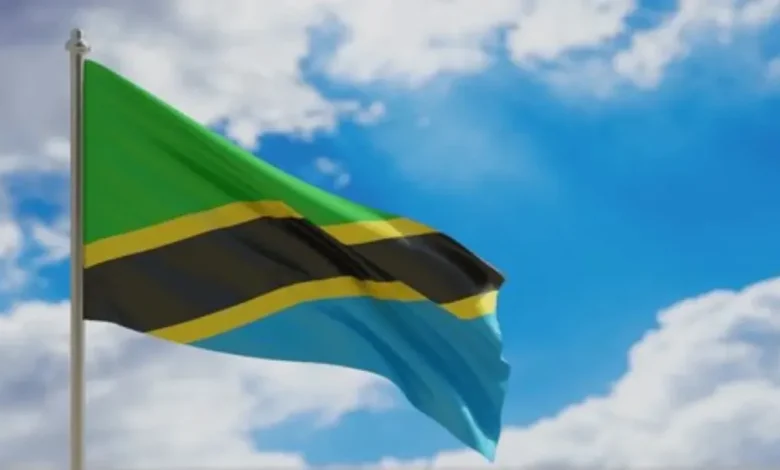Pressure mounts as Tanzania commits to protect its sovereignty

DODOMA: TANZANIA is facing a quiet but intensifying campaign of external political pressure, delivered not through invasions or sanctions but through diplomats, foreign-funded NGOs, religious actors, media networks and powerful Western politicians who present their interventions as “defending human rights” and “promoting good governance.”
Analysts warn that beneath the language of reform lies an attempt to steer Tanzania’s internal politics and shape its future according to outside interests, a pattern increasingly recognized across Africa.
The latest tensions follow opposition campaigns, disputes around constitutional reforms and incidents of violence in which local authorities say foreign-funded activist networks played a major role. As the government attempts to stabilize the political climate, international media outlets and Western officials have issued a stream of statements portraying Tanzania as sliding into repression. Tanzanian officials counter that the same governments now warning of instability have indirectly financed groups that contributed to the unrest.
The contradiction is not lost on many Tanzanians. If Western states are the self-appointed defenders of global human rights, critics ask, where is their outrage in places where violations are far more severe? The humanitarian disaster in Gaza, where thousands of civilians have been killed, has generated only calibrated diplomatic language from Washington and London. In Sudan’s conflict, where aid agencies estimate more than 13,000 deaths and millions displaced since 2023, the tone has been restrained.
“If the principle is human rights, the response should be universal,” Dr. Banj Awadhi, a senior East African analyst said. “But when the victims are not strategically useful, the outrage disappears.”
The selective concern becomes even more striking when measured against domestic realities in the same countries that condemn Africa. The United States recorded 48,830 gun-related deaths in 2021, the highest number ever documented, according to the U.S. Centers for Disease Control and Prevention. Its firearm death rate remains more than 11 times higher than other high-income countries, yet no European government has demanded political reforms in Washington or suggested that the U.S. administration should step down for failing to protect its citizens.
“If Tanzania had U.S.-level gun violence, they would call it a humanitarian catastrophe,” A seasoned Journalist noted. “But when it happens in America, it is treated as an internal issue.”
ALSO READ Analysts defend Tanzania sovereignty – Daily News
Western credibility is further weakened by scandals involving human trafficking, sex trafficking, and drug networks operating across Europe and the U.S. In several cases, officials have been implicated. The usual response is institutional apology and legal reform, not international condemnation. Even on issues as serious as GMO controversies or hazardous industrial products dumped in African markets, Western governments routinely evade responsibility.
Climate change adds yet another layer of contradiction. The world’s largest historical polluters — the U.S., EU, United Kingdom, and other industrialised states — drive the environmental crises that African nations now pay for through droughts, floods, and economic loss. A study published in Resources, Conservation and Recycling found that developed countries accounted for 56.8 percent of cumulative CO₂ emissions from 1995 to 2015 along global value chains.
Tanzania, by contrast, contributes less than 0.1 percent of global emissions. Yet wealthy nations continue to lecture African governments while avoiding meaningful accountability for what many African leaders call “climate injustice.” Dr. William Ruto, Kenya’s President, said at the UN Climate Summit: “They are the silent killers of the climate crisis, but never the accused.”
In Tanzania, the latest interference follows a familiar script seen in other African states: fund civil society movements; amplify grievances through foreign media; mobilize diplomats; pressure the government on political reforms; and shape a narrative that serves external interests. Youth groups, women’s networks, church leaders, and NGOs receive training, grants, and media support from Western agencies. Many operate with transparency and good intentions. Others, officials say, use human-rights language to mask a political agenda aligned with foreign sponsors.
Diplomatic missions issue coordinated statements, often within hours of one another. Western politicians speak openly about Tanzanian domestic affairs, sometimes based on incomplete or misleading reports. Foreign media then amplify these claims globally, strengthening a perception of crisis regardless of local realities.
Tanzania’s newly appointed Preme Minister, Dr. Mwigulu Nchemba has categorically described the pattern as “manufactured instability designed to influence political outcomes.”
“The stakes are rising because Tanzania’s strategic value has grown,” he told editors in Dar es Salaam on Tuesday “we must say no and protect our country.” According to the senior government official, Tanzania’s mineral wealth — including graphite, nickel, helium and rare earths — is central to global supply chains for electric vehicles, semiconductors and renewable technologies. When governments assert greater control over these assets, foreign pressure tends to increase. Across Africa, similar patterns have preceded or accompanied attempts to weaken or discredit sitting administrations.
Observers warn that such pressure often escalates into calls for international investigations or involvement by bodies like the International Criminal Court. Although Tanzania faces no official action, analysts say the narrative being constructed around “rising repression” mirrors early stages seen in states later targeted by international legal institutions. “If it continues like this, it will not be long before someone suggests dragging President Samia to the ICC,” Hurry Mbwete, a governance researcher said. “It is a political tool, not a neutral institution.”
Western states reject these accusations, insisting their engagement supports democracy and human rights. But African governments point to the 2017 African Union resolution — adopted in Addis Ababa — which urged members to collectively resist the ICC’s political bias and explore withdrawal. Most African cases at the Court were either initiated by Western-backed investigations or selectively amplified by foreign actors despite far worse abuses occurring elsewhere without consequence.
The question many Tanzanians are now asking is whether their country should re-examine its relationship with international mechanisms that appear vulnerable to geopolitical manipulation. Withdrawal is not a simple option, and Tanzania has historically valued multilateral cooperation. But the growing perception of foreign interference has triggered deeper debates about sovereignty, self-determination and the boundaries of external influence.
For now, Tanzania remains calm, but the narrative battle continues. Foreign headlines and statements attempt to define the country’s political direction. Local voices insist Tanzania will not be governed by external scripts.
“We welcome partnerships,” said Dr Mwigulu Nchemba. “But sovereignty is not negotiable. Our future cannot be dictated elsewhere (from London, Brussels, or Washington).”
As foreign actors sharpen their criticisms and civil society organisations amplify them, the government’s challenge will be to maintain stability without falling into the traps set by those who benefit from portraying Tanzania as unstable. For many citizens, the broader question goes beyond politics: Why do those who ignore mass killings, climate damage and violence in their own countries claim moral authority over African democracies?
Until that question is answered honestly, Tanzania — like much of Africa — will continue to view international pressure not as principled advocacy, but as interference dressed in the language of human rights.





